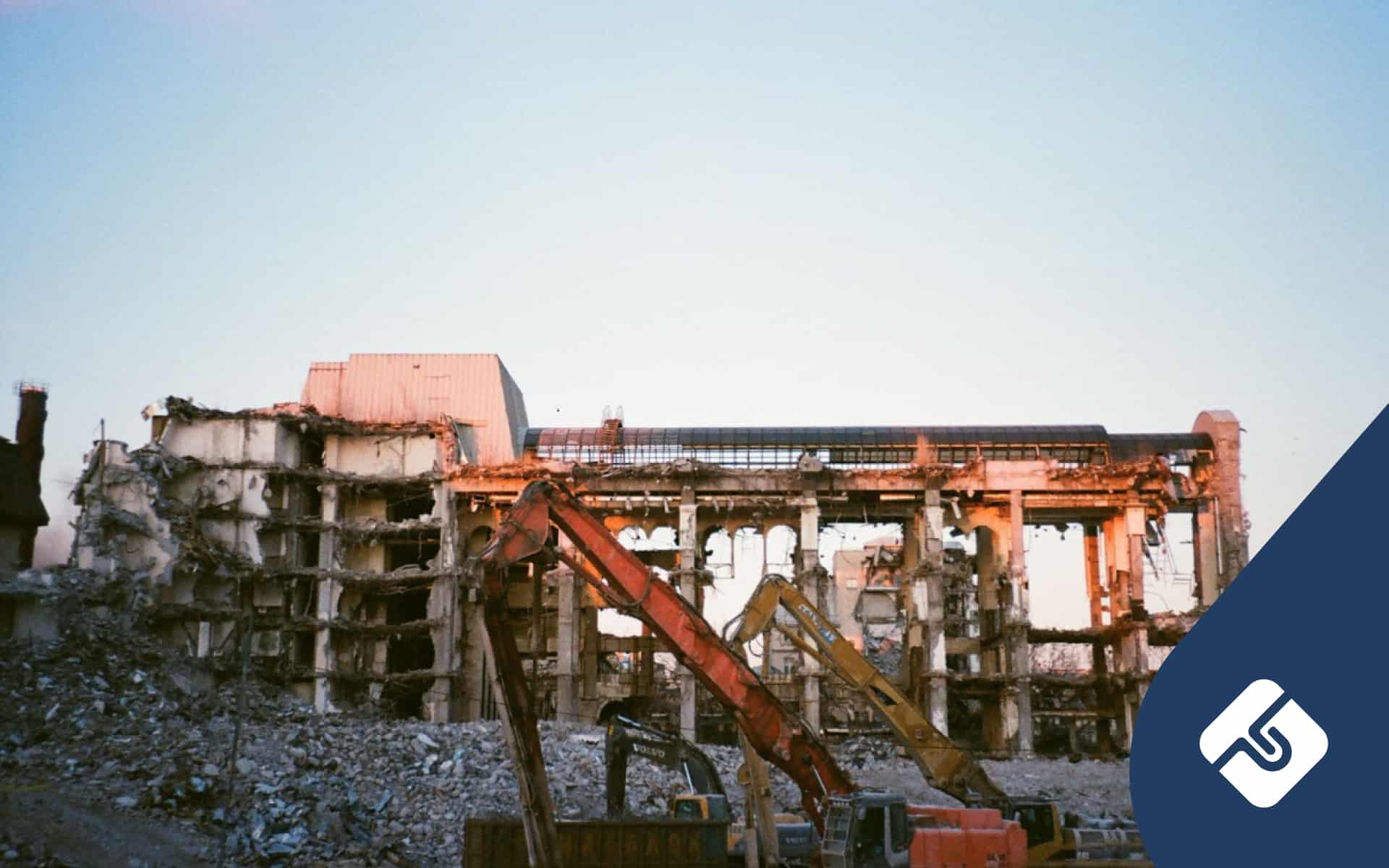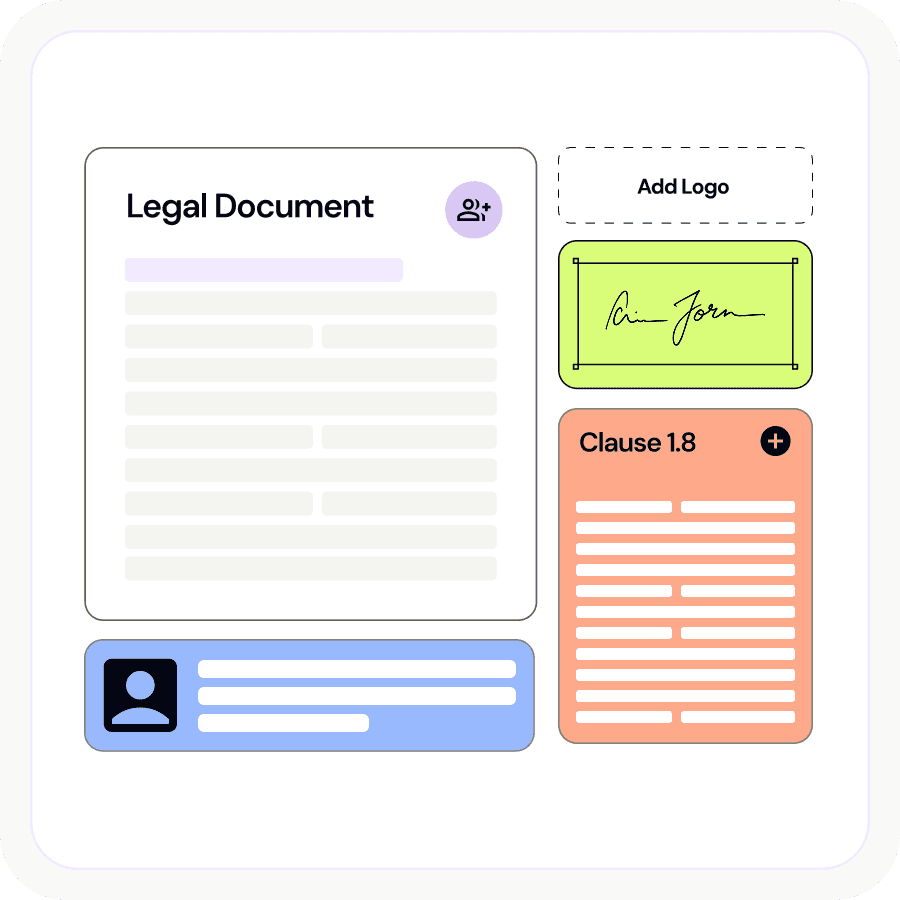If operating heavy machinery and swinging godly hammers sounds like a dream job; then, this post on how to start a demolition business is for you!
Demolition businesses deal with management of demolition projects and you can receive potentially higher returns if you take the appropriate steps to make your business successful. Additionally, a major perk is that it may finally be time to begin enjoying the freedom of being your own boss.
Here are the main things to consider before you kick-start your very own business.
What is a Demolition Business?
According to SafeWork Australia, demolition work involves dismantling a structure or part of a structure that is either:
- load-bearing; or
- somehow related to the physical integrity of the structure
This means that demolition work does not include:
- dismantling formwork, falsework, scaffolding or other structures designed or used to provide support, access or containment during construction work
- removing power, light or telecommunication poles
Getting Started: The Pre-Planning Steps
Research
Doing your research early on will ensure that everything is in order, when you launch your business. When starting a demolition business you are going to need equipment and tools, so understanding what you will need and how much it will cost is a good place to start. You should also do your research to find the best deals to optimise the profitability of your business.
Location
It is important to choose an appropriate location where you can operate your business. This will affect who the clients you are able to serve.
Develop a Demolition Business Plan
Excellent planning will often lead to success. Using your research, you should develop a formal business plan to guide your business. This might include your:
- Business objectives and goals
- Business structure
- Target market
- Competition
- Marketing strategy
You can always seek assistance from a professional accountant or business lawyer to assist you with this, if you aren’t confident in developing a business plan yourself. It’s important to revisit and review your business plan regularly.
Determine your Business Name
Now you need to decide on a business name. Once you decide on your name, you can check the availability of the business name you have chosen.
If the name is available, you can then register your business as a trademark to ensure that you have the exclusive rights to your business name throughout Australia.
Determining your Business Structure
You will need to decide on a business structure to establish your business plan. Consider whether you will operate as one of the following.
- A sole trader is someone who owns and operates a business under their personal name.
- A partnership is when two or more people come together to form a business.
- A company is when you register your business as a separate entity from your personal affairs.
You should contemplate which structure will work best for your business goals. It is important to know what the legal ramifications are of each structure and how they can affect how you operate.
Registering your Business
You need to register for a few things in order to make your business official. For instance:
- A business name
- An Australian Business Number (ABN) to help the Australian Tax Office (ATO) and customers identify your business.
- It would be good practice to also register your business as a company (ACN) so you can benefit from limited liability.
- Register your Tax requirements.
- Ensure that all relevant licences or permits are valid.
Source Insurance
Insurance is the most important step when setting up your business. It is imperative that you protect yourself and your business from any legal action. Firstly, you will need a type of public liability insurance, this will be beneficial for you and your business when customers or staff experience injuries on site or otherwise.
Public liability insurance from insurance companies such as BizCover can help you protect your property and your employees from damage or injury.
Additionally, you will want to ensure you have worker’s compensation set up for these instances. Finally, you will need a form of coverage for all your equipment to protect against loss, damage or theft.
Hire Employees
You will want to consider hiring additional staff to help ensure that your business runs smoothly, especially as it expands. You will need to decide how many employees you are looking to hire and what type of employment they will receive. Will they be full time, part time or casual workers?
You will then need the appropriate employment agreements drawn up and signed. There are different types of employees that you can hire, learn more about how they may affect your business in the Webinar below.
Marketing Your Demolition Business
Now all you need to have a successful business is working on appropriate jobs. When considering how to advertise your demolition business to help you attract individuals or companies in need of demolition work you may want to implement a strategic marketing plan to cover all your bases. This will allow you to gain insight into your target market.
It will also be beneficial in helping you understand what is the most effective marketing method to reach your target market. Some marketing methods you may choose to use include starting a social media page or putting an advertisement in your local newspaper. Another simple and effective approach of reaching new customers is through word of mouth.
Having an online presence is important even for construction companies. Using websites like Shopify or GoDaddy can help you create a well-established business so that your customers can easily find you. Additionally, you should set up and maintain a website which means you need to consider any website terms and conditions to ensure that your customers are safe.
Considering the Law
When starting a demolition business, it is important to ensure you comply with the legal aspect of construction work.
Demolition Licenses
If you are really serious about starting your demolition business, you will need the appropriate licences.
In New South Wales, relevant demolition licenses include either a Demolition licence (DE1) or a Restricted demolition licence (DE2). Choosing the correct licence depends on the type of structures that your future business intends to demolish.
Unrestricted Demolition Licence (DE1)
You should obtain a DE1 license if your business wants to demolish a building or structure that:
- is over 15 metres high
- is a chemical installation
- involves a tower crane on site
- involves a mobile crane with a rated capacity of more than 100 tonnes
- has structural components that are pre-tensioned or post-tensioned
- involves floor propping
- involves explosives.
You might use this licence for demolition work involving load shifting machinery, such as excavators, on car parks or commercial buildings that are usually over five storeys high (over 15m). Or on underground or above ground fuel tanks and associated pipework.
Restricted Demolition Licence (DE2)
On the other hand, a DE2 license may be more suitable if your business wants to demolish a building or structure that:
- is between 4 metres and 15 metres in height involving mechanical demolition such as using excavators, bulldozers or cranes
- is between 10 metres and 15 metres in height and affects its structural integrity
- involves the use of load shifting machinery on suspended floors
Licence requirements
In order to obtain a demolition licence you will need to show that you are over 18 years old, have completed 11 units from the Certificate III in Demolition and Certificate IV in Demolition and have completed at least 3 demolition jobs under a supervisor.
Legal Documents you will need
To get up and running, you should consider these legal documents so that you can protect your business. Some documents you should consider include:
- A Services Agreement can outline the service you provide so that your customer can know what to expect.
- A Employment Agreement can outline your employee’s responsibilities and their obligations to your business.
- A Sub-Contractor Agreement can be useful if you need to employ another business or sole-trader when operating your business.
- A Job Safety Analysis provides a structured way to assess and document the risks associated with particular worksite tasks or activities.
- A WHS Policy outlines the obligations of a company’s management and its employees towards workplace health and safety.
How Lawpath Can Help
At Lawpath, we can help guide you through starting your own demolition business. One of our Experienced Construction Lawyers can provide you with all the legal information and requirements necessary for your business to succeed.







